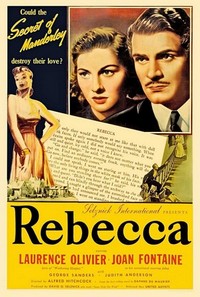
Rebecca (1940)

Raiting: ![]() 8 /10
8 /10
Genre: Mystery
Director: Alfred Hitchcock
Stars: Laurence Olivier, Joan Fontaine and Judith Anderson
Country: United States
Release date: 23 March 1940
Length: 130 minutes


Raiting: ![]() 8 /10
8 /10
Genre: Mystery
Director: Alfred Hitchcock
Stars: Laurence Olivier, Joan Fontaine and Judith Anderson
Country: United States
Release date: 23 March 1940
Length: 130 minutes